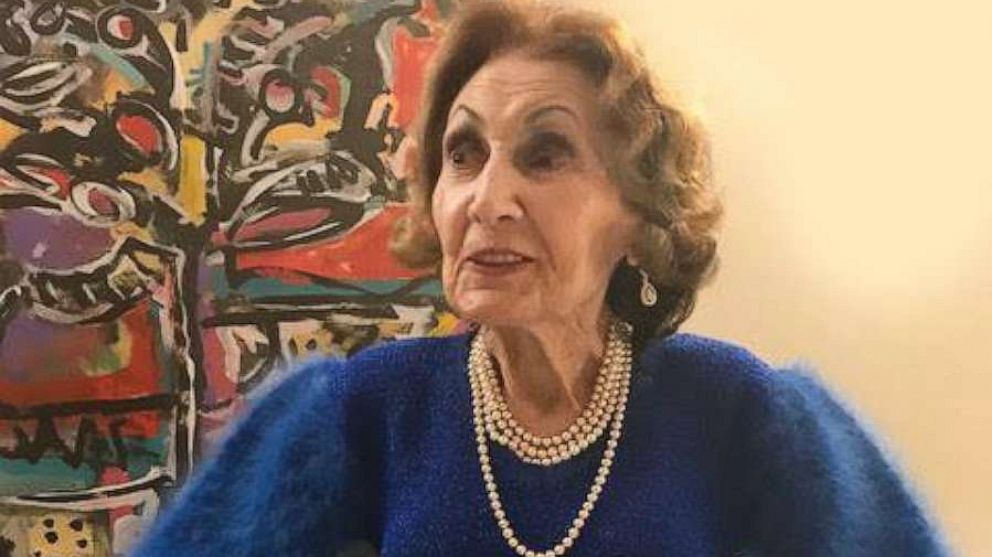A 75-year-old Passover sweater, and the story of the Holocaust survivor who wears it


Helena Weinrauch, 95, has worn the same blue sweater to every Passover seder for the last 75 years.
It’s the sweater she wore to her first Passover seder after surviving a Nazi concentration camp, and it tells a story of persecution, survival and friendship.
The story behind Weinrauch’s sweater is touching people around the world, thanks to a Facebook post by writer Gail Dubov that has been shared nearly 50,000 times.
After meeting at mutual friends’ Passover seder, Dubov was moved to post Weinrauch’s story on Facebook, and write a more detailed version of her plight for Moment magazine.
In 1940, while Helena was at work, her parents and older sister -- along with 300 other Jewish families, were rounded up. She never saw them again. Helena's boss helped her get a new identity posing as a German, and she escaped to the city for Krakow.
Dubov wrote that later, at a social event, Helena "found herself nervously dancing in the arms of a Nazi officer, a dance that would later save her life. But her German disguise didn’t last long. Hurrying down a street one morning, she was recognized by a former classmate who turned her in to the Gestapo."
Helena faced a firing squad, but the Nazi she danced with recognized her. He saved her from the firing squad, but "humiliated that he had been deceived by this Jewish girl, he condemned her to what he believed was a life worse than death, a concentration camp," Dubov wrote.
Helena was saved once more from a firing squad in 1943 in Plaszow, an interim stop before Auschwitz, this time by a Jewish police officer whose sister Helena had helped earlier.
Afterwards, Helena barely survived the 500 mile, freezing cold death march from Auschwitz to the Bergen-Belsen concentration camp.
When the British army liberated Bergen-Belsen on April 15, 1945, Helena’s 60-pound body, Dubov wrote, was mistaken for dead until a British officer realized she was still warm. She was later put on a relief ship headed to Sweden.
The sweater -- which Dubov described to “Good Morning America” as “gorgeous,” was knitted for Helena by Ann Rothman, a young woman and Auschwitz survivor who she met in the Sigtuna hospital in Sweden, where she spent time recovering.
According to Dubov, upon giving Helena the sweater, Ann said, “We have no family, we have no home, we have no money but we can celebrate Passover and honor our families."
“She asked Helena to wear it at Passover and she’s done it for every one since,” Dubov said.
Ann and Helena remained lifelong friends, and the sweater, like their friendship, stood the test of time. Helena, Dubov said, has kept it in perfect condition.
"I kept the sweater all these years because it brought back poignant memories of my past,” Helena said.
Today, Helena lives on New York’s Upper West Side. She ballroom dances, volunteers with the blind and lectures in schools about hate and bigotry. She is a widow, and her only child, her daughter, is deceased.
Dubov said she's "flabbergasted" at the interest Helena's sweater has generated around the world. She told "GMA" she's been contacted by photographers committed to taking images of Holocaust survivors, and by a woman in Sweden asking if Helena might know her grandmother, a nurse who treated survivors.
Helena has previously been the subject of a film, Fascination.
“I am surprised that so many people -- over 150,000 -- were touched by an old woman’s story about her sweater” Helena said. “I am also delighted and humbled. And while I don’t have a computer nor have I ever used Facebook...I think I now understand a little bit -- a very little bit -- about how it works,” she added with a laugh.



